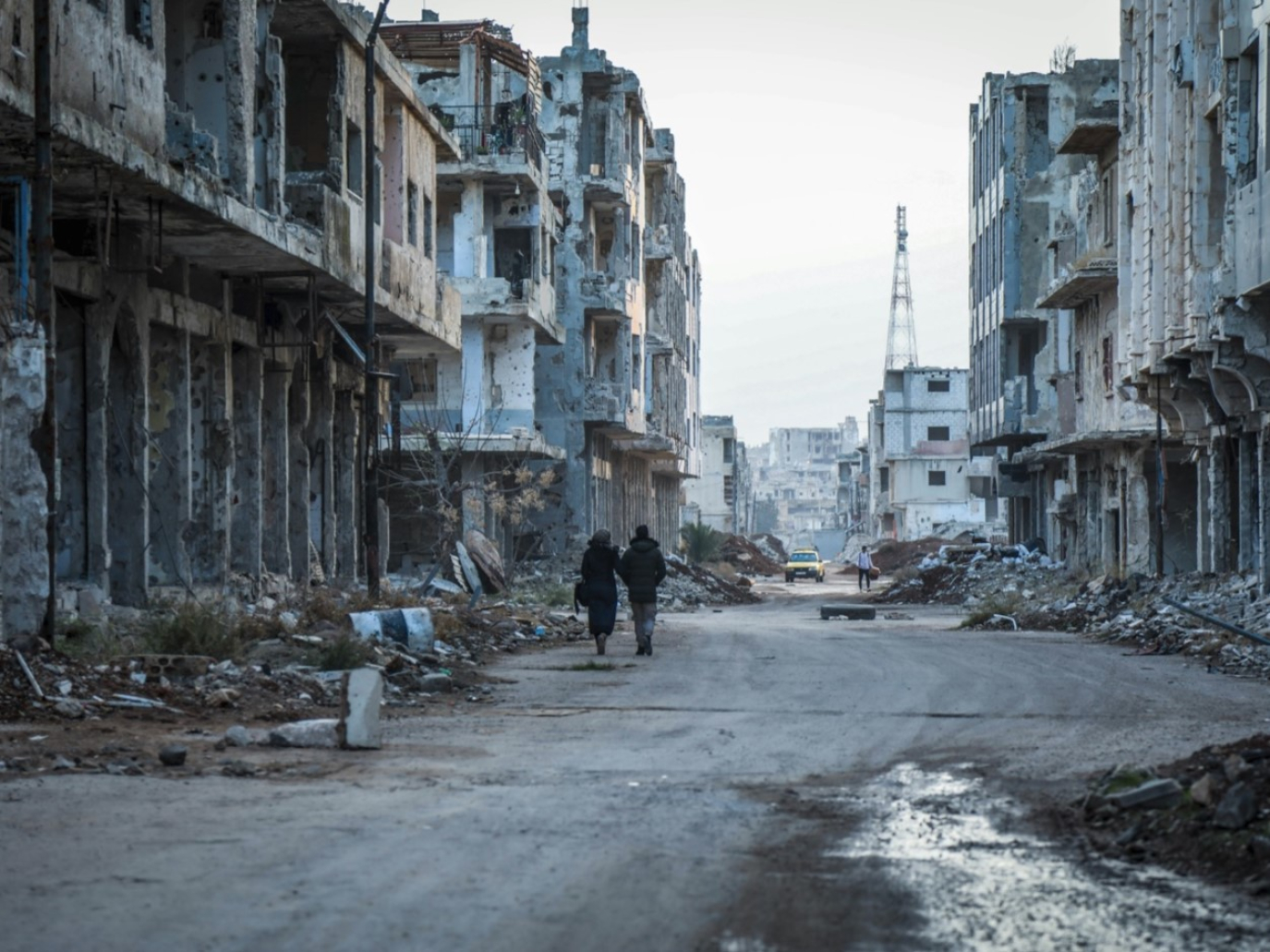
Dead lands do not forget. They record each bomb, each contaminant, each burned hectare like a new geological layer of violence. They are the most accurate archives of war, much more reliable than military reports. And, while diplomats discuss ceasefires, the land does not wait. It just keeps dying, quietly, without any possible ceasefire for its destruction. When the war ends, soldiers can return home; the contaminated soil, however, is what remains.
It was with this clarity, in no uncertain terms, that the Executive Director of UNEP, the United Nations Environment Programme, Inger Andersen, spoke at the UN on the International Day for Preventing the Exploitation of the Environment in War and Armed Conflict. Her speech was underpinned by unequivocal figures: in Gaza, since 2023, 97% of tree crops, 95% of shrubs and 82% of annual crops have disappeared. The water is contaminated with ammunition and sewage. Sixty-one million tonnes of debris are waiting to be removed before the contamination becomes irreversible.
In Syria, the destruction of the Kakhovka dam has flooded more than 600 square kilometres of land. In Haiti, erosion and water pollution threaten to trigger another cholera outbreak. That is what remains of a conflict when weapons fall silent. This is what is happening in Gaza today, and else where there is war today.
Andersen speaks of a “new emerging vicious circle” establishing itself in front of our very eyes: the environment is both victim and a vector of global insecurity. Climate change is no longer just a crisis separate from others: it is a factor adding to religious, ethnic and territorial tensions, it poisons them and precipitates everything. From the plains of the Sahel to the Afghan highlands, water scarcity, loss of crops and forest fires are causing massive evacuation and new rivalries.
The world may stop watching, but the devastation continues. In Sierra Leone, weapons have quieted down since 2002, after ten years of conflicts, but the primary forests and the savannah, just like the Vice-Minister of Foreign Affairs Francess Piagie Alghali said, “fell silent”. Biodiversity is lost, wildlife has migrated, agricultural fields and marshes have been abandoned. These are all direct consequences of the armed conflict, but no one counts them as such any more. Sierra Leone holds the rotating presidency of the UN Security Council this November, and Alghali led a debate on the environmental impact of armed conflicts precisely as the majority of world leaders are gearing up for the COP30 in Belém.
Timing is not accidental: two billion people – a quarter of the global population – now live in areas affected by conflict. “Environmental damage caused by conflicts continues to push people into hunger, into disease, and into displacement,” reiterated Andersen. “Meanwhile, climate change exacerbates tensions and can even contribute to conflict - over water or land resources, for example.” It is a vicious cycle: war destroys the environment, and a failing environment fuels new wars.
Witnessing this devastation, UNEP has not only issued a condemnation: there is also a proposal. Charles C. Jalloh, professor of law and member of the United Nations International Law Commission, has put it in writing: “The legal vacuum does not help. It is necessary to fill the gaps by including massive attacks on nature in international criminal law, recognising the crime of ecocide in the same way as war crimes or crimes against humanity.”
This is not the first time that UNEP has called for the adoption of ecocide as an international crime, but never before has such strong language been used. Jalloh also proposed the creation of a United Nations mechanism to monitor and compensate for environmental damage related to conflicts. ‘Protecting the planet means preventing war from taking root in the earth,’ he concluded.
It is not the first time UNEP calls for the recognition of ecocide as an international crime, but never before has such strong language been used. Jalloh has also proposed the creation of a UN method to monitor and compensate environmental damage connected to armed conflicts. “Protecting the planet means preventing war from taking root in the earth,” he concluded.
Coincidentally, while the tone on ecocide was rising in New York, action was being taken in a land of conflict. Yesterday, Thursday 6 November, Ukraine accused Russia of committing ecocide for the serious environmental damage caused by the war. The Foreign Ministry in Kiev has documented over 10,000 cases of environmental destruction linked to the Russian invasion. Fields burned, forests destroyed, air and water polluted, land mined.
As it happens, while in New York debates about ecocide were getting heated, in a land of conflict instead words turned into action. On Thursday, 6 November, Ukraine accused Russia of committing ecocide for the serious environmental damage caused by the war. Kyiv’s Ministry of Foreign Affairs has so far documented over 10,000 cases of environmental destruction tied to the Russian invasion. Burned fields, destroyed forests, polluted air and water, mined lands.
The environmental damage caused by the conflict is estimated to amount to approximately $142 million since the start of Russia's large-scale invasion. Ukraine was able to do this because its legislative system already includes a law that punishes ecocide. Thanks to this law, a specialised prosecutor's office was set up to collect samples of soil, water, dust and vegetation, creating the first existing database of ecocide as a consequence of war. The paradox is that Russia also has a law on ecocide. There is a real risk that the protection of ecosystems will become yet another tool for conflict between countries. But perhaps, for now, it is a risk worth taking.
Environmental damage caused by the conflict is estimated to approximately $142 million since the beginning of the large-scale Russian invasion. Ukraine, however, could denounce the crime precisely because a law punishing ecocide already exists in its legislative system. It is thanks to this law that a special authority was established, in charge of gathering soil, water, dust and vegetation samples: it became the first existing database of ecocide as a consequence of a war. The paradox, right now, is that Russia has a law on ecocide as well: there is a tangible risk that the protection of ecosystems would become yet another cause of conflict between countries. But, perhaps, for now, it is a risk worth taking.
Cover: photo by Mahmoud Sulaiman, Unsplash



